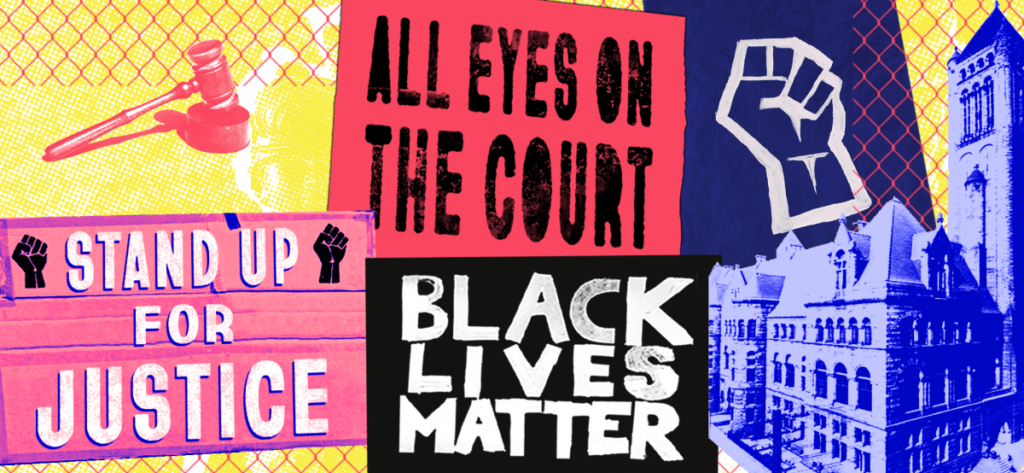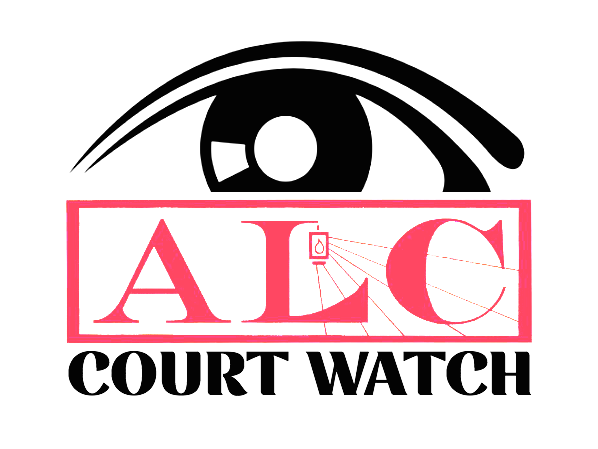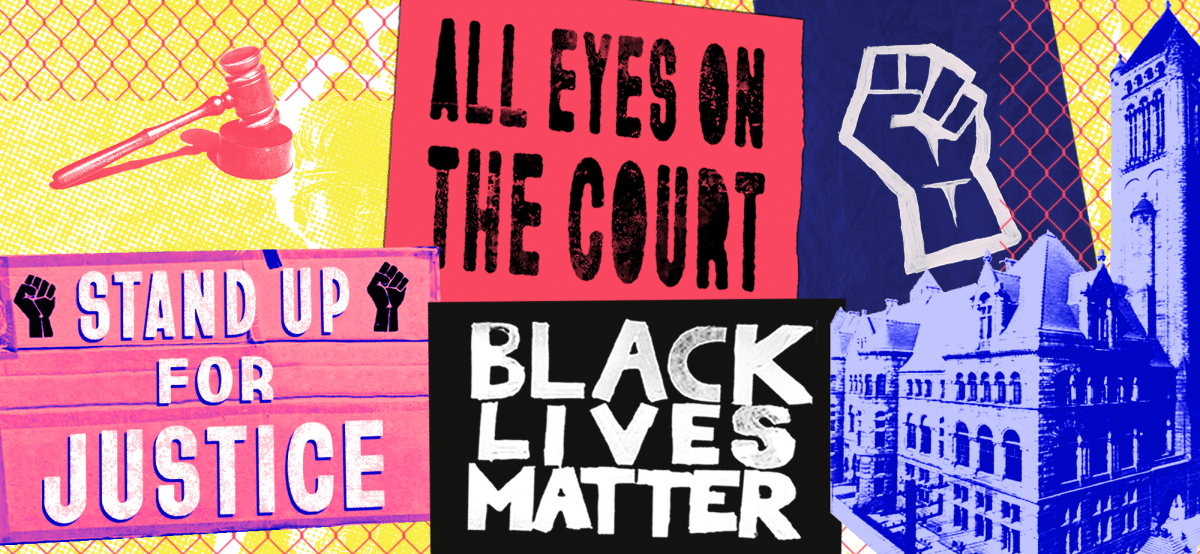Breaking Through My White Bubble

March 18, 2023
by Doug Baker
George Floyd’s murder is why I joined court watch.
It’s not that simple, and the path was not direct, but his murder and the protests that followed were what finally broke through my white bubble. I live in a white bubble. I’m white. All my friends are white. All my colleagues are white.
Living in a white bubble means it is easy to be ignorant of injustice, especially the injustice created by white people against people of color. Injustice doesn’t directly affect white people, so it’s easy to think things are pretty good on the equality front. It’s easy to accept the “bad apple” excuse when police mistreat Black people. Our lives aren’t impacted directly by racism and injustice, so it’s easy to just get on with living our own challenging, messy, and complicated lives. Indeed, I probably even benefit from injustices done, more or less, in my name.
It took a highly publicized murder by the police to break through my white bubble and make me finally wonder why we still have this much injustice. For much of my life I felt like we were making progress. We learned about the civil rights movement when I was growing up. We made progress on de facto segregation in schools and the workplace. I saw Black studies programs created in universities. “The Bell Curve” was published and then torn down. Protections grew to include not just people of color, but those with disabilities and those with different sexual and gender identities.
“Living in a white bubble means it is easy to be ignorant of injustice”
From inside my white bubble, it didn’t look so bad. George Floyd’s murder made me pay more attention. Protests and even riots made headlines out of murders and racism that in the past might never have become national news. Trump opened the door for people to express and act on their racism overtly, whereas in the past these things were said quietly. Kyle Rittenhouse was acquitted of murder charges. This injustice happens in the name of white people. I thought, with all that progress we have made, why is there still this much injustice? How are so many people still so openly racist?
My answer was that it is because white people like me do nothing.
Therefore, activism. I began attending regular protests started by a group of mostly retired white women who stood on 5th Avenue for an hour during rush hour holding signs saying, among other things, “Justice and Equality”, “End Racism”, “Stand Up for Justice”, “John Lewis”, and “Black Lives Matter to White People, Too”. At first they were out on the street every day, and then at least three days a week for over two years (I could only go once a week). One thing I particularly liked about the group was that we were white people standing up against injustice to Black people. White people who passed by couldn’t just write us off as many did with Black protesters. We were trying to break through the white bubbles of all the people driving by.
But holding a sign on the street didn’t have a direct enough effect for me. Maybe we got people thinking. Maybe we didn’t. I’ll never know. So, I tried to organize a similar regular protest closer to my home. Maybe I could pull my white friends out of their comfort zones. If I could get them to join, then I’d know I’d made a direct difference. Sadly I failed. I don’t blame my friends. Activism is hard, and getting people to change what they do is hard, no matter the reason. My failure to get them to act is why I looked elsewhere for a way I can be active on my own, without needing to influence lots of other people.
I struggled with ideas about ways I could have a direct influence fighting injustice. I heard about the court watch program from one of the 5th Avenue protesters as well as through an activist group I’m part of on Facebook. (The group is the Order of the Phoenix. They’re doing a lot of GOTV work.) Court watching sounded like a great fit, and it is.
I believe in the Court Watch program’s mission. But that’s not the reason I joined the program. The program represents a way for me to be in a space where the positions of power are predominantly occupied by white people, but to be there specifically in service of guarding against the bias, prejudice and racism that is so easy to overlook or ignore when you are white. In my short time as a court watcher so far, I’ve already seen how I’m welcome in the courtroom in ways Black people may not be.
Court watching is a way for me to be directly involved in our government in the service of fighting injustice. It is the only place in our government where I, as a citizen, can be in the room where it happens. I can’t attend working sessions of our state or national legislatures, at least not easily. I can’t attend meetings with the governor or president. But the courts are in my backyard, and their work is always open to the public. Not just a hearing or two, as may be the case with our legislating bodies, but all day, every day.
“Court watching is a way for me to be directly involved in our government in the service of fighting injustice.”
I can’t participate in any of the work, but I can see the work in progress, live as it happens. I can observe and record what I see. My observations become a direct part of a larger record where behaviors and patterns can be documented. If I witness misconduct, bias or prejudice, my observations can be part of the evidence used to fight that misconduct and hold our judicial system accountable.
As a court watcher, my activism has direct consequences. At a minimum, my presence in the courtroom can send a signal that someone is watching, that someone cares. I think it is important that white people see that white people care. I may not break through anyone else’s white bubble, but I am at least placing myself inside that bubble.
It’s easier to break a white bubble from the inside than from the outside.

